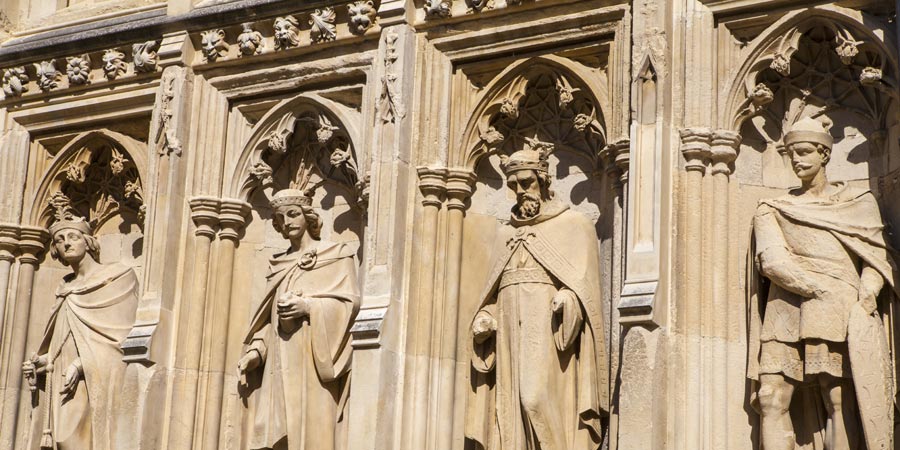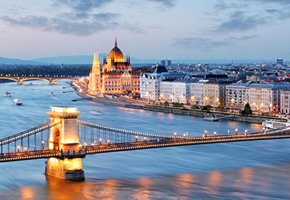The Plantagenets were one of England's greatest Royal Families and ruled over a period of three hundred years. During the family's time on the throne, many social and economic changes took place throughout the kingdom. England transformed from a colony which suffered from fractured governance to an affluent and politically engaged nation on the world stage. One of history's most important documents was sealed during the Plantagenet era, the Magna Carta - giving birth to English democracy. Many of England's greatest military victories before Trafalgar and Waterloo were orchestrated in this epoch, shaping the nation's identity as an emergent military power and a country whose influence pervaded far beyond its borders. The Plantagenets also left their mark on the enduring architecture of England, building King's College, Westminster Abbey and Windsor Castle, all which today stand as emblems to the eternal legacy of one of England's most influential families.
The family's infancy can be traced back to the original Counts of Anjou in France, established at the beginning of the 10th century by Fulk I of Anjou. England's first Plantagenet King was Henry II, who came to the English throne at the age of 21 on the death of King Stephen in 1154. Henry arrived in England on the 8th of December and took oaths of fealty from the influential English Barons before being crowned at Westminster Abbey with his wife, the powerful Eleanor of Aquitaine, on December 19th. Henry was red haired and had a temper to match, processing a noted dynamic energy. He reigned until 1189 and was buried at the Abbey of Fontevrault.
Henry was a seminal figure in the emergence of the Plantagenets and embodied many of their well-documented traits. After their establishment the family were measured by their ability to expand England's domains in France, winning many a famous battles. The Hundred Years' War was the backdrop for the most prominent of these, and began to define England as a nation associated with the mastery of warfare. The first notable victory during this era was the Battle of Crécy, fought on the 26th August 1346 near Crécy in France. A French army of around 30,000 men was resoundingly defeated by Edward III, the 7th Plantagenet King, with his army of 15,000 men. It chronicled the rise to prominence of one of the most famous weapons in warfare, the English Longbow. Edward utilised its power with high-ground and the use of revolutionary infantry tactics to defeat the French roster of armoured knights. Two more famous victories followed, the Battle of Poitiers and Agincourt, both noted as devastating English victories and an indictment of French inability to deal with English battlefield ingenuity.
Aside from the lasting legacy of great battlefield victories the Plantagenets also bequeathed democracy to England in the form of Magna Carta, considered to be one of the most important documents in the western world. The charter protected many of England's powerful landowners and helped to even the balance of power between them and the King. It sowed the seeds for a society whose machinations ran along the lines of due process, limitations to feudal payments to the crown and protection against illegal imprisonment. The charter was sealed by King John in 1215 at Runnymede on the banks of the Thames.
This period in history is also associated with many of England's most famous buildings, which come from the same dynasty. Canterbury's magnificent Gothic cathedral is one of these, and was the site of Thomas Beckett's controversial murder by King Henry's men in 1170. The King was said to be outraged as Becket disagreed that the church was bound under English law, instead Becket persisted with the notion that it was only answerable to god. Their former friendship deteriorated and four of the King's knights acted upon one of his grousing statements: "Will no one rid me of this turbulent priest"? As a result Becket was butchered on the steps of the altar in Canterbury Cathedral.
The Plantagents have left an indelible mark on British history and have become one of the world's most important families, presiding over England's growth and emergence on the world stage as well as the birth of the document that heralded the beginning of English democracy. You can experience some of the landmarks and learn about the history of this, sometimes ruthless lineage on a Great Rail Journeys holiday, just take a look through our new Historical Collection of tours






